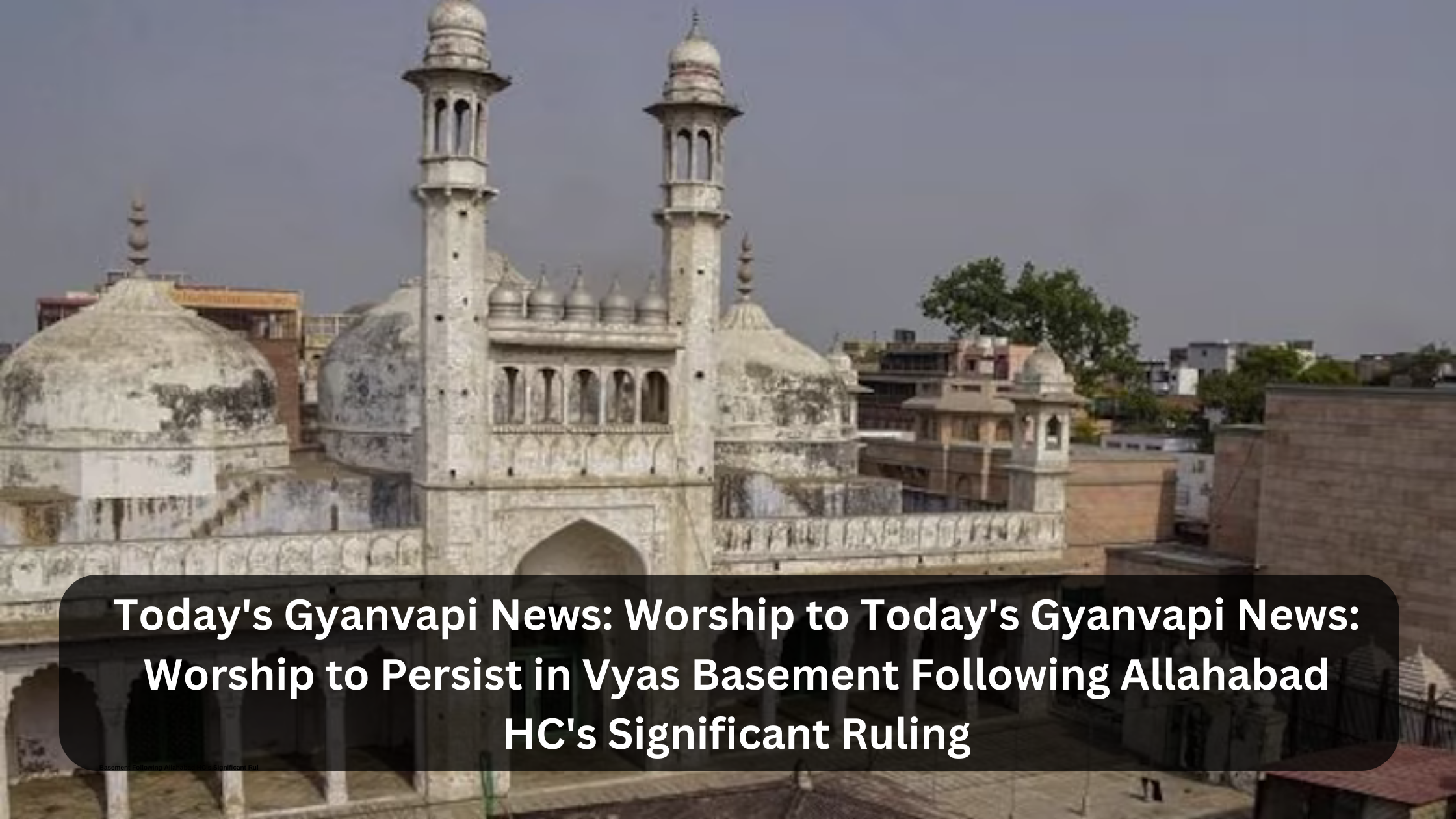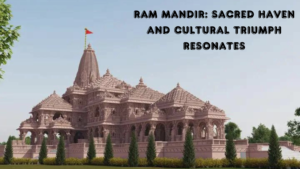Today’s Gyanvapi News: Worship to Persist in Vyas Basement Following Allahabad HC’s Significant Ruling
The Allahabad High Court has rendered a significant ruling concerning prayer in the basement of Vyasji. The court rejected the Muslim side’s request and ruled that the basement will remain the location of prayer. Let us inform you that the Hindu side has been granted permission to worship in Vyas ji’s basement by the Varanasi District Judge. The Muslim side then appealed to the High Court. The Muslim side can now petition the Supreme Court after the High Court denied their petition.
The puja that the Varanasi District Judge had recently ordered will continue, the High Court declared while issuing the order. We would like to inform you that the Gyanvapi Mosque’s management committee, the Anjuman Intejamia Masjid Committee, filed an appeal with the Allahabad High Court bench of Justice Rohit Ranjan Aggarwal. The bench has heard the appeal and has reserved a decision. “Today the Allahabad High Court has rejected both the petitions of Anjuman Arrangement, which means that the puja which was going on will continue in the same manner,” stated Vishnu Shankar Jain, the attorney representing the Hindu side in the Gyanvapi case. We will also voice our opinions in the Supreme Court if they proceed to the highest court.”
A prohibition on puja was in place in 1993
Puja was no longer held in the Vyas ji basement after December 1993, when entry into the Gyanvapi courtyard’s barricaded area was forbidden. Additionally, the attachment and indulgence rituals had ceased. In court, the Hindu side further asserted that worship took place here even when Britain was in power. The aforementioned basement contains items associated with Hindu religious worship, numerous antique sculptures, and other items of religious significance.
What is the basement of Vyasji?
One of the four basements in the Gyanvapi Mosque complex is still owned by the Vyas family who previously resided there. which is referred to as Vyas ji’s basement. The Gyanvapi Mosque complex’s southern side is where Vyasji’s basement is located. The petition claims that priest Somnath Vyas prayed there up until 1993. According to the petition, the officials shut down the basement because the previous government had given them orders to do so. He was then denied the opportunity to worship there.
On Monday the Allahbad High Court dismissed the Varanasi District Judge’s order allowing Hindu devotees to pray inside the ‘Vyas Ka Tehkhana’ area of the Gyanvapi mosque complex. Judge Rohit Ranjan Agarwal of the Allahabad High Court delivered the ruling. rejecting the petition, Justice Rohit Ranjan Agarwal stated, “After going through the entire records of the case and considering the arguments of the parties concerned, the court did not find any ground to interfere in the judgment passed by the district judge on January 17, appointing the Varanasi district magistrate as the receiver of the property, as well as the order dated January 31 by which the district court permitted puja in the tehkhana.”
The Committee of Anjuman Intezamia Mosque. The high court heard appeals filed by the Varanasi-based Gyanvapi mosque operations. Advocate Vishnu Shankar Jain, representing the Hindu side, said as follows: “The current order directs that the ongoing puja in the ‘Vyas Tehkhana’ of Gyanvapi complex will continue.” The first appeal against Anjuman Intezamia’s orders was dismissed by the Allahabad High Court today. We will present our caveat to the Supreme Court in the event that the Anjuman Intezamia is heard there.”
“The judge dismissed the pleas that the Muslim side had filed against the District Judge’s order,” said advocate Prabhash Pandey. This indicates that the puja will go on exactly as it is. The District Magistrate shall remain the one to receive the ‘tehkhana’. An important win for our Sanatana Dharma is this. The Muslim side is free to request a review of the ruling. Puja will go on.
The court had previously postponed making a decision following a protracted discussion between the parties. On February 26, the decision will be made at ten in the morning. Four ‘tahkhanas’ (cellars) make up the mosque’s basement; the Vyas family still resides in one of them.
The president of the All India Majlis-e-Ittehadul Muslimeen (AIMIM), Asaduddin Owaisi, had previously asserted that the Places of Worship Act was broken by the Varanasi court’s ruling allowing Hindu devotees to offer prayers inside the “Vyas Ka Tekhana” area of the Gyanvapi mosque complex.
Read More: Article 370: A Cinematic Journey Through Historical Reforms










